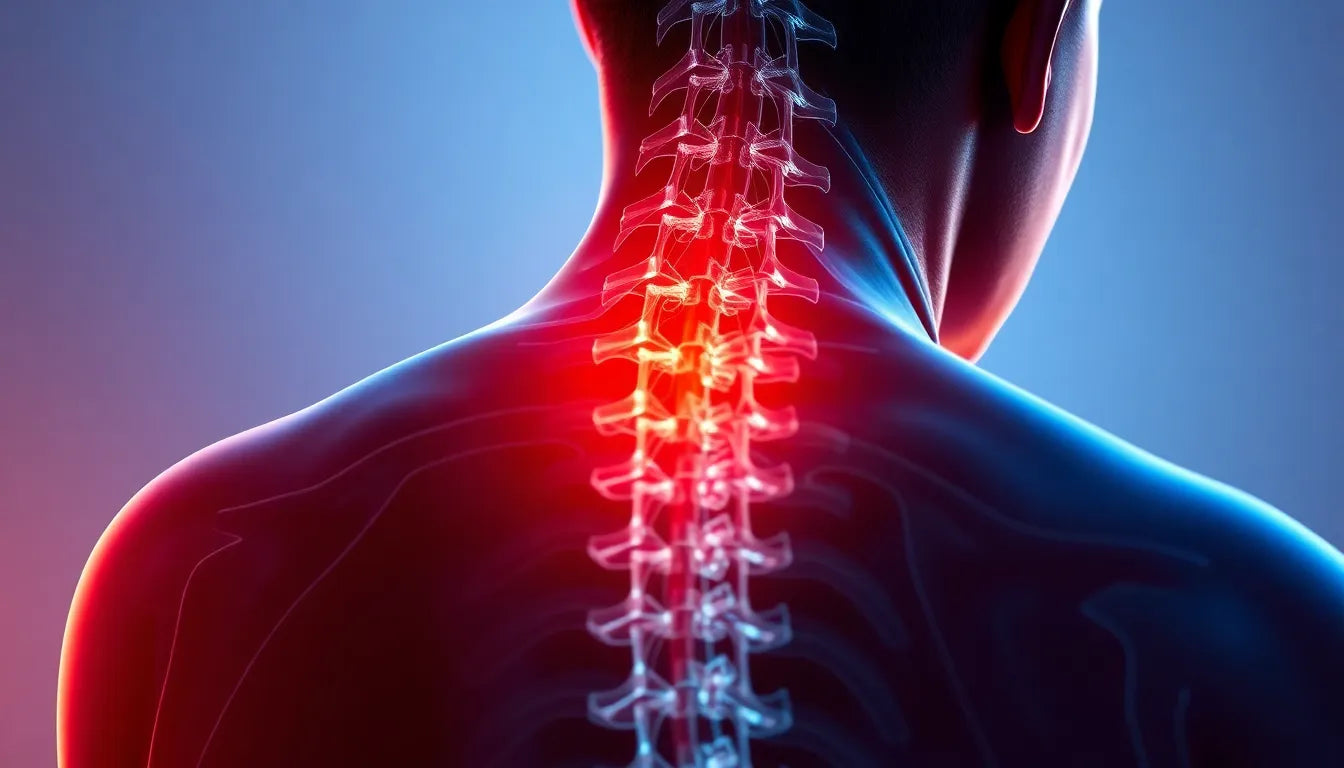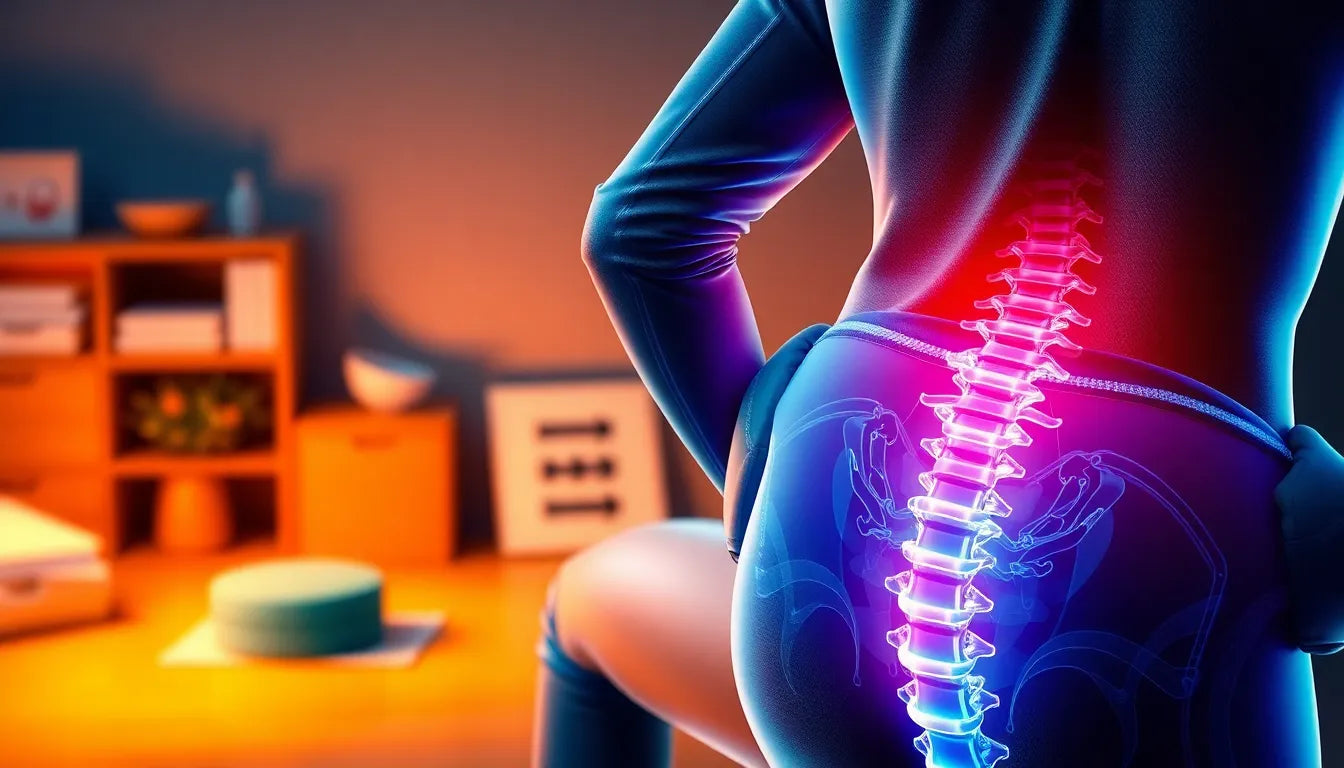Back pain is a common affliction, affecting millions of people worldwide and often disrupting daily life. Among the various causes of back pain, a herniated disc is one of the most significant and misunderstood. But how painful is a herniated disc, really? Understanding this condition is crucial for effective treatment and management.
what is a herniated disc?
A herniated disc occurs when the soft, gel-like center of a spinal disc pushes through a crack in its tougher exterior. This can irritate nearby nerves, leading to pain, numbness, or weakness in an arm or leg. While some people may experience no symptoms, for others, the pain can be severe and debilitating.
Despite its prevalence, there are many misconceptions about back pain and herniated discs. It's not just a condition that affects the elderly or those with physically demanding jobs; a herniated disc can happen to anyone, often without warning. This blog post aims to dispel some of these myths and focus on the reality of herniated disc pain.
importance of recognizing symptoms
Recognizing the symptoms of a herniated disc is vital for timely intervention. Early detection can prevent the condition from worsening and help manage pain more effectively. Ignoring the signs can lead to chronic pain, reduced mobility, and in severe cases, permanent nerve damage. Understanding what a herniated disc feels like is the first step towards seeking appropriate medical care and improving your quality of life.
In the following sections, we'll delve deeper into the symptoms and stages of a herniated disc, providing a comprehensive guide to help you identify and address this common issue. Stay informed and proactive in managing your back health.
detailed symptoms of a herniated disc
One of the most telling signs of a herniated disc is the nature of the pain. Often described as sharp, burning, or stabbing, this pain can radiate from the lower back to other parts of the body. According to medical insights from Spine-health and the American Academy of Family Physicians (AAFP), individuals may feel discomfort extending through the buttock, down the thigh, and into the leg and foot. This occurs when the herniated disc presses on nearby nerves, causing pain that follows the path of the affected nerve root.
Beyond pain, a herniated disc can also lead to other symptoms such as muscle spasms, numbness, and weakness. These symptoms vary depending on the specific nerve roots involved. In severe cases, individuals may experience bowel or bladder dysfunction, indicating a need for immediate medical attention.
stages of disc herniation
Understanding the stages of disc herniation can help in recognizing the progression of symptoms and the urgency for treatment. There are four primary stages:
stage 1: disc protrusion
In the initial stage, known as disc protrusion, the outer layers of the disc begin to weaken, allowing the inner gel-like substance to push outward. Symptoms may be mild, with occasional discomfort or stiffness.
stage 2: disc prolapse
As the condition progresses to disc prolapse, the nucleus pulposus, or the soft center, starts to bulge further, causing more noticeable symptoms. Pain becomes more frequent, and some individuals may experience tingling or numbness.
stage 3: disc extrusion
Disc extrusion marks a significant increase in symptoms. The inner disc material breaks through the outer layer, intensifying pain and other symptoms. At this stage, individuals often experience severe discomfort and may struggle with mobility.
stage 4: disc sequestration
The final stage, disc sequestration, occurs when fragments of the disc break away and enter the spinal canal. This stage can lead to severe complications, including increased pain, nerve damage, and potential loss of function in the affected areas.
| Stage | Symptoms |
|---|---|
| Disc Protrusion | Mild discomfort, occasional stiffness |
| Disc Prolapse | Frequent pain, tingling, numbness |
| Disc Extrusion | Severe pain, reduced mobility |
| Disc Sequestration | Intense pain, nerve damage, possible loss of function |
Recognizing these stages and their associated symptoms is crucial for timely intervention. If you suspect you are experiencing symptoms of a herniated disc, consult a healthcare professional to determine the best course of action. Early diagnosis and treatment can significantly improve outcomes and help manage pain effectively.
differentiating herniated disc from other conditions
Understanding the unique symptoms of a herniated disc is crucial for distinguishing it from other common back-related conditions such as sciatica and low back strain. Here are some key differences:
- Herniated Disc: Pain is often sharp, burning, or stabbing and can radiate from the lower back to the buttock, thigh, leg, and foot. It may be accompanied by numbness, tingling, or muscle weakness.
- Sciatica: Typically characterized by pain that follows the sciatic nerve path from the lower back through the buttocks and down the leg. It is often a symptom of a herniated disc but can arise from other issues as well.
- Low Back Strain: Usually results in a dull, aching pain localized to the lower back. It may be caused by muscle or ligament strain and does not typically involve nerve-related symptoms like numbness or tingling.
when to seek medical help
If you experience persistent or worsening symptoms of a herniated disc, it is essential to consult a healthcare professional. Early intervention can prevent further complications and improve your quality of life. During a medical evaluation, you can expect the following:
- Physical Examination: Your doctor will assess your range of motion, reflexes, and muscle strength to identify affected areas.
- Imaging Tests: MRI or CT scans may be recommended to confirm a diagnosis and determine the extent of disc herniation.
- Treatment Plan: Based on the evaluation, your doctor will suggest a personalized treatment plan, which may include medication, physical therapy, or, in severe cases, surgery.
Frequently Asked Questions
What causes a herniated disc?
A herniated disc can result from various factors, including aging, which causes discs to lose water content and become less flexible. Injury from lifting heavy objects or twisting awkwardly can also lead to disc herniation. Lifestyle factors, such as being overweight or having a sedentary lifestyle, may increase the risk.
Can a herniated disc heal on its own?
Yes, a herniated disc can heal naturally over time. The body's immune system may absorb the herniated material, reducing pressure on the nerves. However, recovery time varies based on the severity of the herniation and individual health factors. Rest, physical therapy, and medication can aid in the healing process.
What are non-surgical treatment options?
Non-surgical treatments for a herniated disc include physical therapy, which helps strengthen the muscles around the spine, and medications to reduce pain and inflammation. Ergonomic aids, such as supportive chairs or lumbar belts, can also alleviate symptoms. Lifestyle changes, like regular exercise and weight management, may prevent future issues.
How can I prevent a herniated disc?
Preventing a herniated disc involves maintaining a healthy spine through regular exercise, focusing on core strength and flexibility. Proper posture, especially when sitting or lifting heavy objects, can reduce strain on the spine. Maintaining a healthy weight and avoiding smoking also contribute to spinal health.
Is surgery necessary for a herniated disc?
Surgery is typically considered only when conservative treatments fail to relieve symptoms, or if there is significant nerve damage causing severe pain or loss of function. Surgical options include discectomy, where a portion of the herniated disc is removed, or spinal fusion, which stabilizes the spine.
Understanding the symptoms and treatment options for a herniated disc is vital for effective management and recovery. If you suspect you have a herniated disc, seek medical advice to explore the best course of action for your situation.
Sources
- Spine-health. "Lumbar Herniated Disc Symptoms."
- American Academy of Family Physicians (AAFP). "Clinical Evaluation and Treatment Options for Herniated Lumbar Disc."
- Premier Spine Institute. "Which Stage of Disc Herniation Are You In?"
- Scosteo. "Sciatica vs. a Herniated Disc: How to Tell the Difference."
























